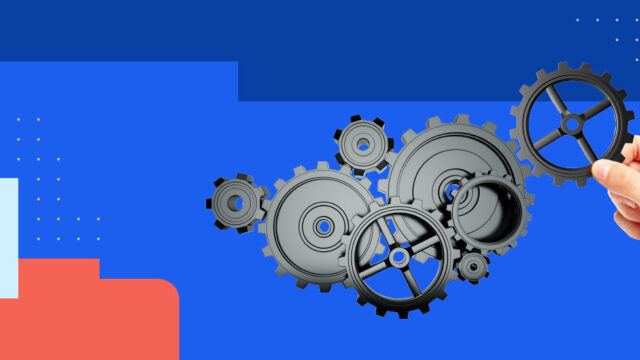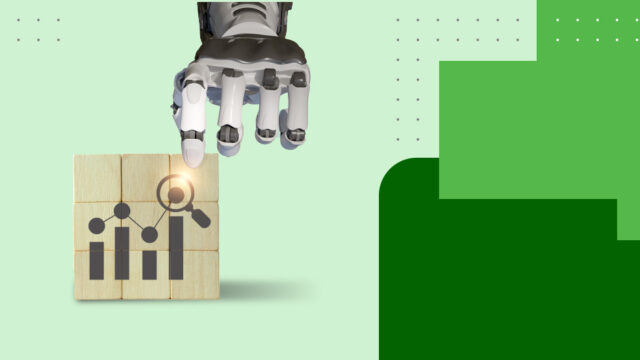
How Process Automation Can Help Modernize Your Accounting Firm
Discover how PA speeds up operations, reduces errors and lets practitioners focus on higher-level work.
Not long ago, accounting mainly used physical ledgers and spreadsheets. Calculations and entries were entered by hand, which was monotonous yet crucial work.
Process automation (PA) began when these manual functions were converted to digital spreadsheets, which allowed for more straightforward calculations and data storage. Fast-forward to today and advanced software platforms with robust PA features, such as Caseware Financials, orchestrate a symphony of efficiency.
At its core, process automation uses technology to streamline routine tasks that humans have traditionally performed. It speeds up operations, reduces errors and allows professionals to focus on higher-level work.
The introduction of process automation marked a turning point in how we viewed accounting tasks. They were no longer seen as only ones carried out by humans, but ones that tech could more efficiently perform.
How process automation operates in the accounting world
The beauty of process automation in accounting lies in its precision and predictability. You can design and program each task to execute reliably and repeatedly. The fatigue and mistakes associated with manual labor are no longer part of the picture and won’t compromise the results.
But how does PA operate, exactly? In financial reporting, you can customize PA systems to manage various tasks. From data entry to report generation, these systems are agile enough to adapt to multiple financial scenarios and specifications. The triggers that initiate these processes can be as simple as a predefined time frame, a specific event or the completion of a precursor task.
PA in accounting deploys an intricate web of algorithms and systems that work together to achieve the desired outcomes.
Process automation vs. robotic process automation
Process automation and robotic process automation (RPA) are close siblings, but they have different roles in the tech-enhanced workflow family. PA encompasses a broader range of technology. It can streamline protocols, including tasks that do not require a physical robot to complete.
On the other hand, RPA is a specific type of PA. It combines artificial intelligence, machine learning and other advanced technologies. These techs manage high-volume, repeatable tasks that previously required human intervention. It is a layer of PA focused on the most routine and rules-based tasks, often seen in data entry and migration scenarios.
The benefits of process automation for accounting firms
Businesses face complex and convoluted financial reporting demands. Process automation is an opportunity for them to reap the following benefits:
Efficiency and time savings
Tasks that previously took hours now take minutes, and the time saved can be significant. For businesses, this means you can spend hours on more valuable work, including innovation, problem-solving and client relations.
Reduced chance of errors
Human error is an unavoidable facet of manual processes. However, with PA, the likelihood of computational mistakes is drastically reduced. Automation is precise, leading to better and more reliable reports. This advantage is invaluable in a profession where accuracy is non-negotiable.
Lower costs and increased profitability
The labor cost savings are palpable. Also, using resources more efficiently increases the likelihood of profit.
Compliance and governance
PA speeds up processes and enhances compliance by always taking the proper steps in sequence. This method is particularly significant in an industry where adherence to regulatory standards is paramount.
PA’s critical role in accounting
With a solid understanding of the benefits, it’s time to explore how PA explicitly bolsters the efforts of accounting firms.
Easier completion of financial statements
PA systems can pull and compile data from multiple sources. They can then perform complex calculations quickly to ensure your financial statements are comprehensive and compliant.
Increased financial reporting accuracy
You cannot overstate PA’s accuracy. In accounting, the slightest error can have significant ramifications. Guaranteeing your firm’s accurate and complete financial reports is vital for maintaining trust with clients and stakeholders.
Streamlined audit processes
Paired with robust audit software, PA simplifies and accelerates the auditing process. It provides you with a clean, organized report that is easy to interpret and communicate to your clients.
Improved audit trail and data security
PA enhances your audit trail by keeping a comprehensive record of all actions taken within a PA system. This level of transparency is critical for compliance and data security in financial report automation.
Embrace the future of accounting through process automation
Process automation is the harbinger of a new era in accounting. It is defined by streamlined operations, heightened efficiency and a reclamation of valuable time. The dividends are substantial for firms that dare to adopt and adapt to this wave of innovation.
Are you ready to transform your firm? Explore the features of Caseware Financials and see how they can streamline your accounting strategy. Process automation is ready to propel your firm to new heights, so there’s no better time than now to seize the future.








